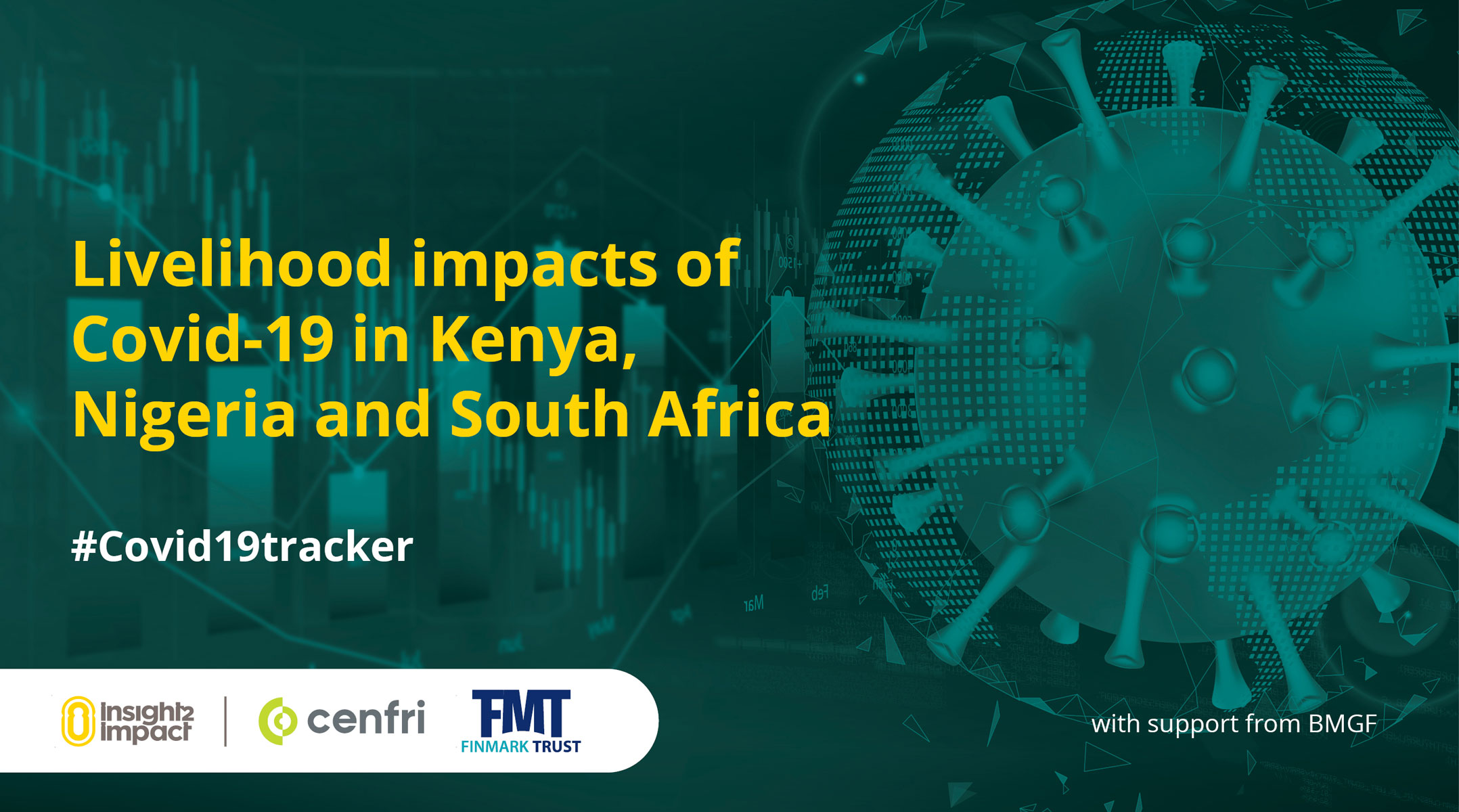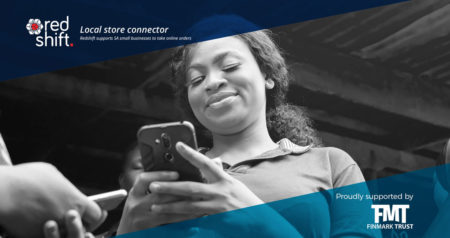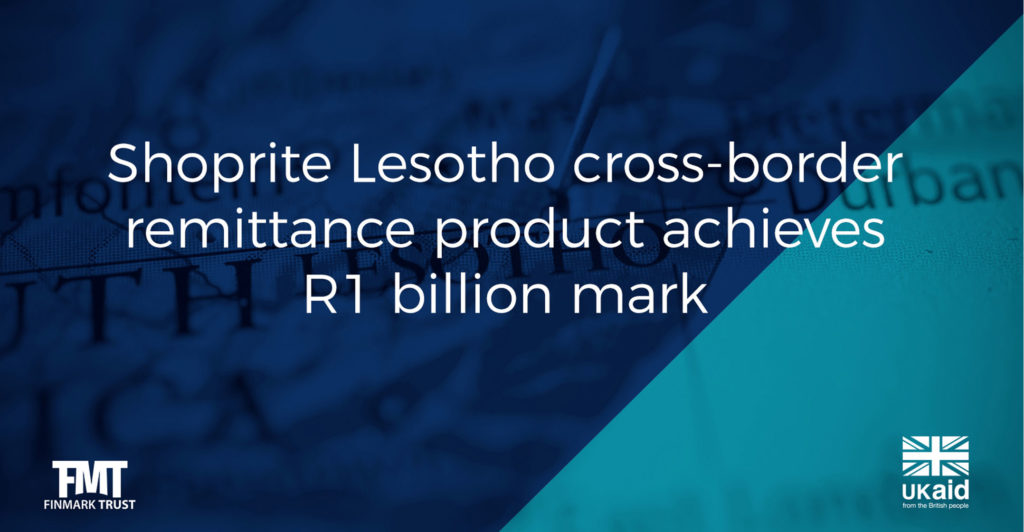 FinMark Trust is conducting a series of telephone surveys to track the evolution of the livelihoods impacts of Covid-19 on people across Africa. These surveys will be conducted weekly, over a 10-week period, to baseline and report on the trends of these impacts. This is the first data release for this ongoing study.
FinMark Trust is conducting a series of telephone surveys to track the evolution of the livelihoods impacts of Covid-19 on people across Africa. These surveys will be conducted weekly, over a 10-week period, to baseline and report on the trends of these impacts. This is the first data release for this ongoing study.
This work will benefit citizens of the targeted African countries as policymakers, civil society and researchers leverage these data and analysis to improve Covid-19 responses. Many policymakers lack high-quality updated data, particularly from vulnerable low-income communities and informal labourers. These data will provide an essential input into critical decision making and will be communicated publicly as open-access data and in a targeted way through the institutional networks associated with the grantee.
Governments are in a difficult position – pressured into implementing emergency measures based on various modelled estimations in the face of a global pandemic. The three countries reported on here — Kenya, Nigeria and South Africa — have announced various relief efforts that span several domains. The implementation of these measures will be constrained by how the lockdown impacts on systemic functioning. Our intention is that the data collected will assist decision makers to optimise their planning and implementation of appropriate mitigation strategies.
The data was collected between 8 and 15 April in Kenya, Nigeria and South Africa, and weighted to be nationally representative of the 18+-year-old populations of those countries. This time period corresponds to lockdowns of differing scope and scale across these three countries.
- Kenya implemented a national 30-day curfew on 27 March, and suspensions on trading and religious gatherings on 22 March. On 6 April, 21-day restrictions on movement were implemented in Nairobi, Kilifi, Kwale and Mombasa.
- In Nigeria, Lagos state announced its first limits on the size of religious gatherings on 18 March. Full lockdown was implemented in Lagos, Osun and Federal Capital Territory (FCT) states on 31 March.
- South Africa declared a National State of Disaster and announced its first limits on gatherings on 15 March. Full national lockdown was implemented for 21 days from 27 March and was extended until the end of April.
This survey is not epidemiological in nature but reflects the lived experiences of the populations across several themes. This data reflects the impact Covid-19 is having on the perceived livelihoods of individuals and households in Kenya, Nigeria and South Africa, across eight key thematic areas:
- Food security
- Access, availability and use of regular health services
- Covid-19-relevant health behaviour changes
- Household income
- Micro- and small-business owner effects
- Access to and use of financial services
- Migration
- Personal safety
Some insights by country
- South Africans have responded positively to calls for greater hygiene practices, with most respondents indicating an increase in several hygiene related practices. One negative is the rush to stockpile food and other household items. Some 89% of South Africans are aware of travel restrictions and only 4% have travelled outside of their city or town during the past 14 days. Despite the lockdown, South Africans still have access to medicines for chronic conditions (HIV, TB, diabetes, etc) with only 2% of the population reporting that it is more difficult to access chronic medication now and only 1% indicating that they could not get other medicine they needed during the past seven days. Some 81% report that medicine cost the same as it did before 1 March. Access to finance has not been affected in South Africa. However, only 8% of the population can find 1/20th of GNI in seven days if they had too.
- Seventy-eight percent of Kenyans are washing their hands more, but other practices are lagging. Forty-eight percent reported that they are aware of travel restrictions and only 7% have travelled outside of their city or town during the past 14 days. Fifteen percent report that they are finding it more difficult to find contraceptives now compared to before 1 March. Thirty percent have had to change the way they access medical care for chronic conditions (HIV, TB, diabetes etc). Fourteen percent of the population report that they could not get the medication they needed during the past seven days. Forty-two percent reported that medicine is more expensive since 1 March. Access to financial services remains good, with only 5% reporting having trouble sending or receiving money. Only 3% of Kenyans can find 1/20th of GNI within seven days if required. This is down significantly from the same time last year.
- Fifty-eight percent of Nigerians are washing their hands more, but other practices are lagging. Sixty-nine percent reported that they are aware of travel restrictions and only 12% have travelled outside of their city or town during the past 14 days. Eight percent of Nigerians report that they are finding it more difficult to find contraceptives now compared to prior 1 March. Ten percent of Nigerians have had to change the way they access medical care for chronic conditions (HIV, TB, diabetes etc). Fourteen percent of the population reported that they could not get the medication they needed during the past seven days. Half reported that medicine is more expensive since 1 March. Twenty-five percent of Nigerians reported having trouble sending or receiving money during the past 14 days with 35% saying their preferred money agent was closed or ran out of cash. Financial health is poor with only 4% able to raise 1/20th of GNI within seven days if required.
In this first release, we show the data for three of the seven countries. It is important to note that the countries are different in important ways and drawing comparative conclusions can be misleading. A full set of data tables can be found here.
Uganda, Rwanda, Zambia and DRC will be included in future releases.
Visit covid19tracker.africa and follow the conversation on our channels with #Covid19tracker. Should you have any interest in being involved in the project, or wish to use the data to support important decision making, or are simply interested in receiving updates as and when the data goes live, please sign up here to get updates on this work as it unfolds.
Please contact Grant Robertson, head of data and analytics at FinMark Trust on [email protected] with any questions.
About FinMark Trust
FMT is an independent trust established in 2002 with the objective of Making Financial Markets Work for the Poor. Since its establishment, FMT has focused its work in this area by facilitating and catalysing development towards greater access to financial services. Through engaging stakeholders with credible, evidence-based advocacy and initiatives, FMT has consistently promoted increased and responsible use of financial services. Visit www.finmark.org.za for more information.
About insight2impact (i2i)
insight2impact (i2i) is a global resource centre that seeks to improve financial inclusion through the smarter use of data. Whether you are a financial service provider, policymaker or development partner, we aim to see you develop evidence-based, data-driven policies or client-centric products that are inclusive and impactful. Visit www.i2ifacility.org for more information.
- This promoted content was paid for by the party concerned




